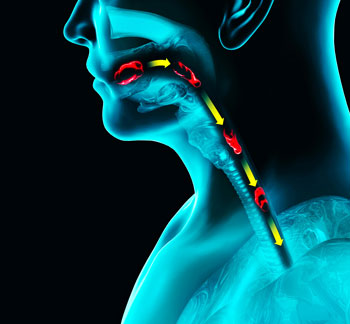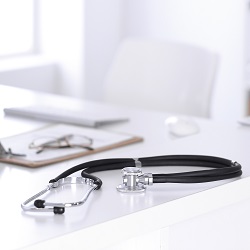Easing diagnosis of eosinophilic esophagitis
This month's issue addresses eosinophilic esophagitis, medical workplace violence, and more.
How often do you think about swallowing? If you're like most people, not often, but if you're a patient with eosinophilic esophagitis, it could be all the time. An immune-mediated disease, eosinophilic esophagitis is usually treated by gastroenterologists, but primary care physicians can be key players in making the diagnosis, and appropriate therapy can make a world of difference to those affected, experts say. Our story offers advice on what to look for in primary care, including food triggers and symptoms of dysphagia.
Health care workers are at greater risk for workplace violence than those in other fields, according to federal data. At a time when pandemic stress and political tensions have heightened concerns, physicians may be wondering what they can do to keep themselves, their staff members, and their patients safe. Our story offers perspectives and advice from experts in workplace safety and patient communication. Among their tips: Document any concerning behaviors, no matter how seemingly small, and stress to patients that there will be zero tolerance for verbal and physical aggression.
Our I.M. Ready feature this issue is all about Fellowship, specifically, becoming an FACP. ACP's Board of Regents recently approved modifications to the criteria for Fellowship that are meant to streamline the process and make it more accessible to those practicing in nonacademic settings. For example, the required number of letters of recommendation is now one rather than two, and additional qualifying activities beyond academia have been included. Learn more, including some personal stories from members about what becoming an FACP has meant to them.
Elsewhere in this issue, the Pearls from I.M. Peers column discusses managing the myriad symptoms of menopause, while a Q&A with a drug safety expert outlines what clinicians need to know about potential drug-drug interactions with colchicine. Hear from Eileen D. Barrett, MD, MPH, MACP, Chair of the Board of Regents, who guest-authored this issue's President's Message, on the importance of tackling burnout as an occupational phenomenon, and from Chief Advocacy Officer Shari M. Erickson, MPH, on preparing for the next pandemic.
Finally, in celebration of Women in Medicine Month, I talked to Susan Thompson Hingle, MD, MACP, former Chair of ACP's Board of Regents and Board of Governors and current President-elect of the American Medical Women's Association. Hear her thoughts about gender equity, advocacy, mentorship, and more.
Are you an FACP, and if so, what do you think is the biggest benefit of Fellowship? Let us know. immatters@acponline.org
Sincerely,
Jennifer Kearney-Strouse
Executive Editor





